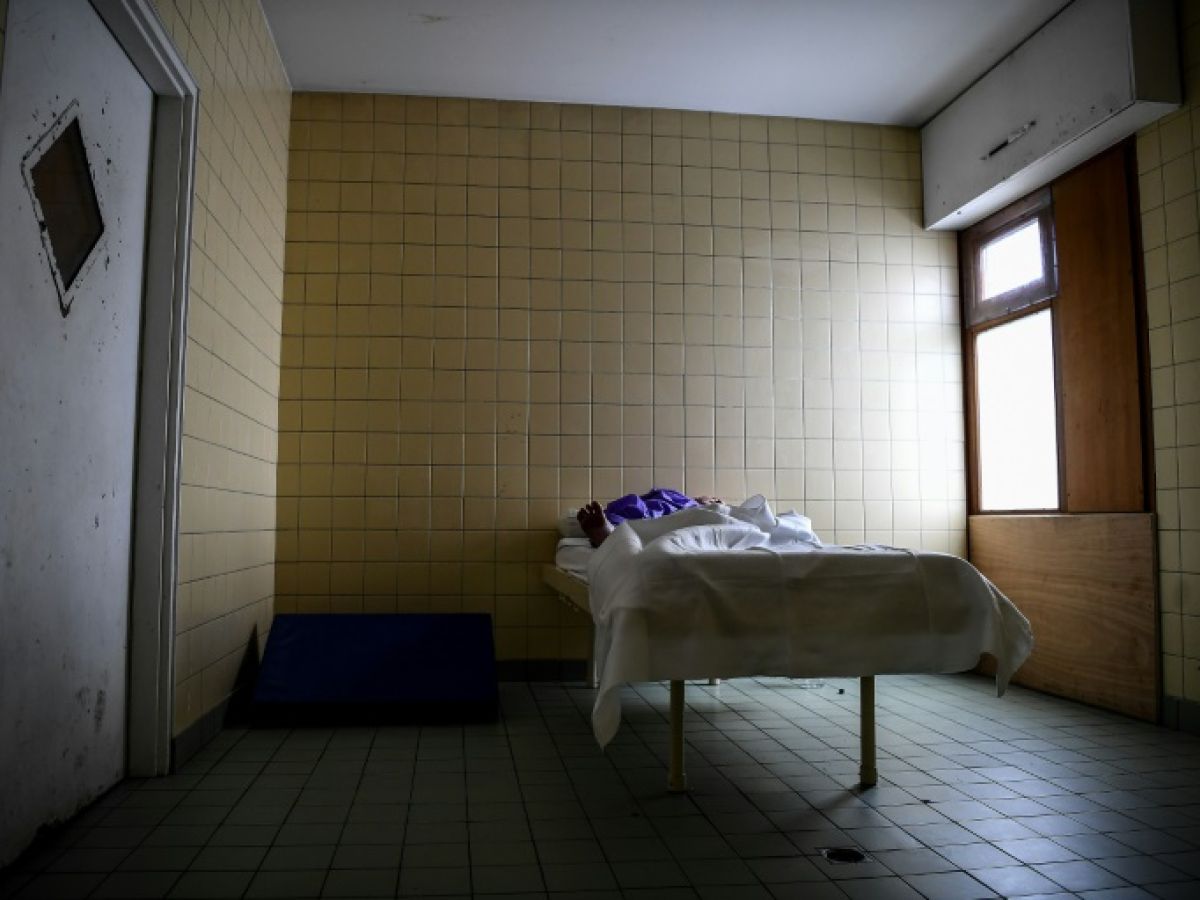“ My son was strapped in and was traumatized by it. »: the use of restraint in psychiatry is increasingly being questioned in France by both patients and their loved ones and by health professionals, who are calling for the abolition of these restraint techniques, which they consider inhumane.
Sylvie (name changed) struggles to contain her emotion when she recalls the arrival of her 32-year-old son, who suffers from schizoaffective disorder, in a psychiatric unit in the Paris region. They immediately put him in restraints, they told me later that they had strapped him in because he had clenched his fists, just for that." she tells AFP, still stunned.
“ I was told that was protocol and there were no other options." she laments, adding that her son has been tied up on other occasions since. He told me how humiliating and traumatic it was, he once found himself urinating on himself because he couldn't get up to go to the bathroom. It's totally dehumanizing.“.
According to the latest report from the Institute for Research and Documentation in Health Economics (IRDES), 8,000 people were subjected to so-called mechanical restraint in psychiatric hospital wards in 2022, being strapped to a bed at chest or wrist and ankle level.
Since 2016, this technique is only supposed to be used in " last resort » and can only concern patients in full hospitalization without consent. Only " to prevent immediate or imminent harm to the patient or others” And "in an appropriate, necessary and proportionate manner", specifies the public health code. But an overwhelming majority of the 220 establishments that provide psychiatric care without consent continue to practice it, according to Irdes. In 2022, only 32 reported not using it.
However, this practice is " traumatic", insists Mathieu Bellahsen, psychiatrist and author of "Abolish restraint" (Editions Libertalia, 2023). You have to imagine: you have several people taking possession of your body, who lie you down. You can no longer move." . " This will reactivate old traumas, particularly among people who have experienced sexual violence." he adds. As for the caregivers, " many people experience it very badly, between shame and guilt“.
Read alsoBetter mental health care: the government unveils its ordinance
Alternatives
In recent months, calls to end restraint – described as a "human rights violation" by the World Health Organization (WHO) – have grown. In early May, Philippa Motte, who suffers from bipolar disorder, published a book of testimonies, " And it's me who's locked up » (Stock) in which she returns to the contention.
A few weeks later, members of the Association of Young Psychiatrists and Young Addiction Specialists (Ajpa) published a column in Le Monde to ask: the abolition of isolation and restraint practices"In June, it was the turn of the National Union of Families and Friends of Mentally Ill and/or Disabled People (Unafam) to demand " psychiatry without violence" . " This systemic suffering must end and give way to other methods based on listening, appeasement and respect for rights.", its president Emmanuelle Rémond told AFP.
The government does not seem ready at this stage to definitively abolish this practice. In its psychiatry plan published in June, it reaffirms that " isolation and restraint should remain measures of last resort", but continues to judge their use" sometimes necessary“.
Yet, advocates of abolition point out, alternatives exist. In a study of four institutions that historically used less coercion, the Plaid Care research program identified several levers for action. A culture of availability » towards the patient – « he is listened to and can enter the nurses' office", an emphasis on the quality of the welcome, a good knowledge of the patient, which allows the caregiver to know how to calm him down - or even a " horizontality in the relationship "patient-doctor," lists sociologist and study coordinator Sébastien Saetta. For Mathieu Bellahsen, " The issue is not to say 'there are bad guys who attach and good guys who don't', it is to think about our practices and do things differently.“.
